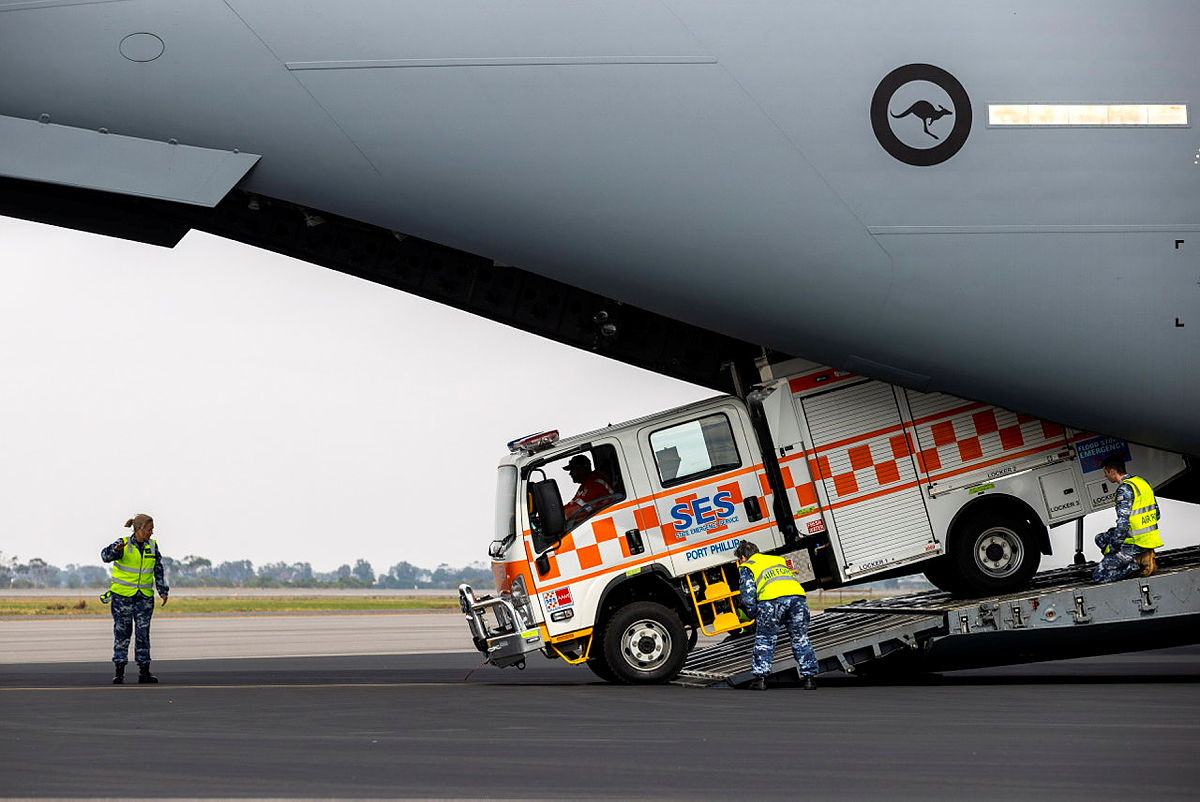Human survival depends on total mobilization to fight global warming

Australian security leaders including the ex Defence Force Chief, Chris Barrie, and Air Force Deputy Chief, John Blackburn warn that global mobilization is required to deal with the existential threat (i.e., human extinction) from global warming: “Global inaction has resulted in climate change becoming an immediate existential threat to humanity and, together with nuclear war, is the greatest threat to the security of Australia and its people: “Global inaction has resulted in climate change becoming an immediate existential threat to humanity and, together with nuclear war, is the greatest threat to the security of Australia and its people.”
I have said this myself many times, e.g., On the down-hill road to extinction and in other posts on Climate Sentinel News — but here it is being said by people who should matter to our Parliaments.

by Daniel Hurst, 8/12/2022 in The Guardian
Australia needs ‘wartime mobilisation’ response to climate crisis, security leaders say
Australian Security Leaders Climate Group says measures needed to contain climate change will be disruptive, but better than ‘existential threat’ of the alternative
Australia must adopt a “wartime mobilisation” response to the climate emergency, former security leaders have told a review of the country’s defence policy.
The Australian Security Leaders Climate Group is calling for “a fundamental reframing of Australia’s defence and security strategy” away from geopolitical rivalry.
The group – whose members include the former Australian defence force chief Chris Barrie and former air force deputy chief John Blackburn – argues the country must push for unprecedented global cooperation on the climate crisis.
Despite the US and Australia vowing on Wednesday to “drive stronger global action to address the climate crisis”, the security leaders insist the issue is still being treated as an afterthought rather than a top-order threat.
Read the complete article….
Voters need to ensure that our elected representatives take the climate emergency as seriously as our Defence chiefs do, and enact the necessary laws and provide the necessary leadership to ensure this effort is mobilized at state, national and international levels.
Featured Image from The Strategist (The Australian Strategic Policy Unit) article, Australia needs to build total defence in the face of national crises The following quote is also from that source:
In Australia, the prevailing view of mobilisation is that it is an activity associated with going to war. In the event of an armed conflict, the nation mobilises to support the Australian Defence Force. Against recent events, including the 2019–20 bushfires and Covid-19 pandemic, the ADF has mobilised to support the nation. As the range of potential hazards now encompasses high-end warfighting, grey-zone conflict, terrorism and organised crime, as well as domestic and offshore natural disasters, no single institution can sufficiently respond on its own.
Mobilisation should be redefined as occurring in response to all such events, drawing on all required and available elements from across the breadth of Australian society. But it must not be seen as just the response to a crisis; it should also include preparing for and, where possible, preventing such events, as well as supporting subsequent recovery efforts.